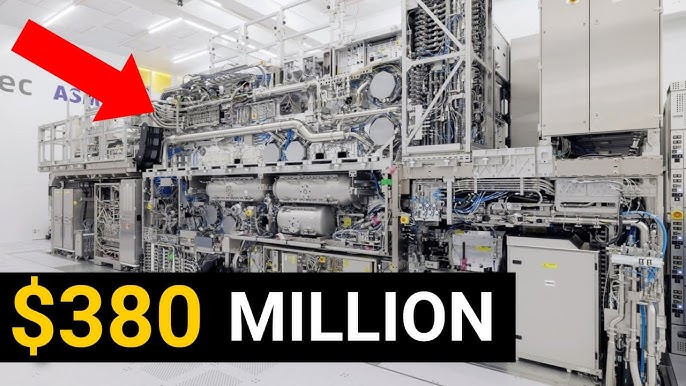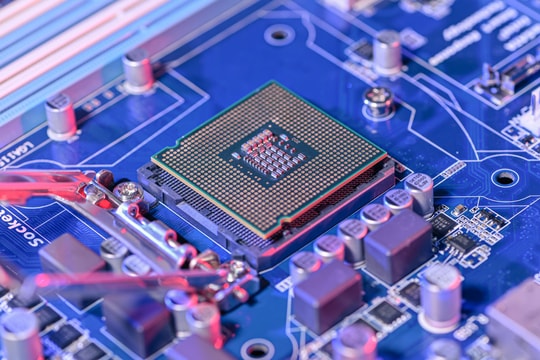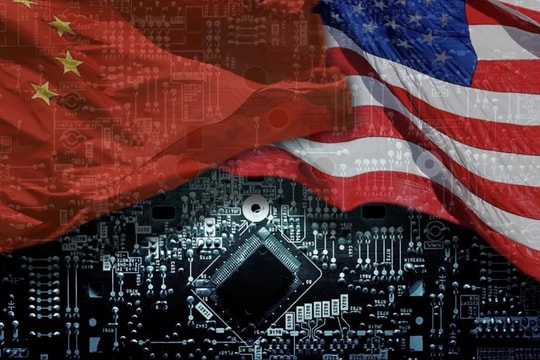China threatens retaliation against the Netherlands and Japan in the semiconductor chip war
The semiconductor war is becoming more complex and fierce as China threatens to retaliate against restrictions imposed by the Netherlands and Japan, moves that could not only affect the semiconductor industry but also have serious consequences for the global economy.
Tensions escalated when Dutch Prime Minister Dick Schoof announced that the license for the world's leading chip manufacturing equipment supplier ASML may not be renewed, meaning that China will face a serious shortage of essential equipment and maintenance services for the chip manufacturing industry.
ASML, with its advanced extreme ultraviolet lithography machines, is key to manufacturing the most advanced chips. The shortage of these equipment will severely cripple China's semiconductor industry and exacerbate trade tensions between the superpowers. Experts say the decision could profoundly change the landscape of technological competition in the coming years.

Chinese state media and officials have issued stern warnings, threatening retaliatory actions against the Netherlands and Japan if they comply with US demands to tighten chip export controls.
The Global Times, the mouthpiece of the Chinese Communist Party, issued a stern warning, asserting that if the Netherlands complies with the US request to stop providing maintenance services for high-end deep ultraviolet (DUV) lithography machines in China, Beijing will take corresponding countermeasures, such as imposing trade restrictions or seeking alternative suppliers and reassessing cooperation with the Netherlands in various fields.
The warning comes after Bloomberg reported on August 29 that the Dutch Prime Minister may not renew some of ASML's licenses to maintain and supply spare parts in China when they expire at the end of this year.
The Dutch government has decided to restrict exports of ASML’s advanced DUV lithography machines to China under growing pressure from the US, according to reliable sources. The decision is expected to have a significant impact on China’s semiconductor industry.
US-China trade tensions continue to escalate as the Biden administration is reportedly considering using the Foreign Direct Product Regulation (FDPR) to tighten controls on technology exports to China. This means other countries may be restricted from exporting products using US technology to the Chinese market.
“We are conducting intensive and comprehensive negotiations, always keeping ASML’s long-term economic interests at the forefront,” the Dutch Prime Minister said in an interview with Reuters on August 30. “Careful consideration of potential risks and ensuring economic benefits are of utmost importance in this process. ASML plays a core role in the Dutch creative industry, and protecting the company’s global position is our top priority.”
But the Netherlands is not alone in facing growing pressure. Japanese companies are also feeling pressure from China, according to a Bloomberg report. Beijing has warned Tokyo it will take countermeasures if Japan tightens chip export controls.
Executives at automaker Toyota Motor have expressed deep concern to the Japanese government about China’s potential restrictions on supplies of rare earth minerals, which are key inputs for the auto industry, a move Toyota said could cause serious disruptions to its global supply chain.

Since the beginning of this year, the Dutch government has officially banned the export of ASML's most advanced DUV lithography systems, including the NXT-2000i, NXT-2050i, NXT-2100i and subsequent versions, to the Chinese market.
Despite the export ban imposed by the Netherlands, the market for chipmaking machinery remains porous, with Chinese companies easily able to acquire similar systems from third markets, making it difficult for ASML to refuse to provide maintenance and spare parts.
In late July, media reported that the Biden administration would expand the scope of the FDPR, which was first introduced in 1959 to control US technology transactions, by the end of August this year.
The sources said that the Washington administration could use the FDPR to prevent China from buying high-end high-bandwidth memory (HBM) chips made in South Korea and chipmaking equipment made in the Netherlands and Japan through locations such as Israel, Singapore, Malaysia and Taiwan. However, the US has not yet announced these restrictions.
Since last year, the Washington administration has been urging the Dutch government to restrict maintenance services provided by ASML to Chinese customers. The restriction is likely to target at least five advanced DUV lithography machines in China.
Chinese state media and commentators said the impact of the restrictions on China's chip industry would be huge because the affected machines are crucial for producing 7-nanometer semiconductor chips.
Regarding this issue, Jiefu, an IT writer in Chongqing, said: “If ASML stops providing maintenance services and components to China, some DUV lithography machines may have to stop working from next year. This will be a lose-lose situation for both the Chinese semiconductor industry and ASML.”
“This is Washington’s strategic move to further provoke China and contain its development,” the Global Times said in a commentary on September 1. “This move will exacerbate the deepening rift in China-US and China-Netherlands relations, increasing global geopolitical instability.”
The Amsterdam government is now carefully weighing the potential economic benefits and risks of restricting exports to China. The decision puts the Netherlands in a difficult position, weighing short-term economic interests against diplomatic pressure from major partners. These moves show that the US containment policy towards China has had widespread ripple effects, forcing many countries to make difficult choices.
Former Taiwanese Ambassador to New Zealand Dale Jieh Wen-chieh has issued a dire warning that the US could further tighten sanctions on China’s semiconductor industry, saying the US could force ASML to stop repairing high-end DUV lithography machines in China, thanks to US control over extreme ultraviolet technology, an essential component of these lithography machines.
Mr. Dale Jieh Wen-chieh emphasized that, with these limitations, SMIC - one of China's leading semiconductor chip manufacturers - will face many difficulties in maintaining advanced chip production capacity, especially 7-nanometer chips that Huawei is in dire need of.
However, a commentator in Hunan (China) expressed optimism about the future of the Chinese chip industry, saying that people should not worry too much because Chinese chipmakers will eventually find a way to get the necessary components and repair advanced DUV lithography technology, just as Russia can still buy US chips through various unofficial channels.

.jpg)



